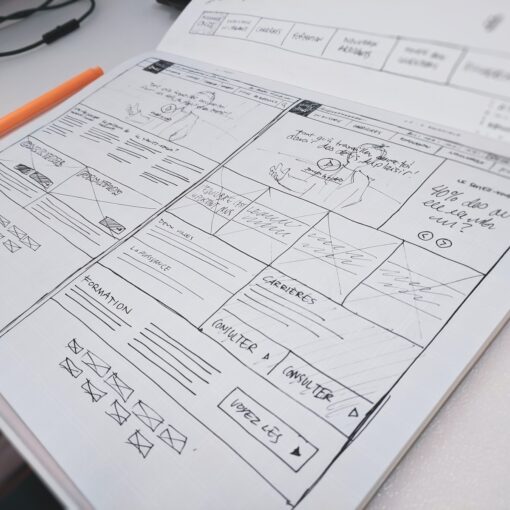
Launching a new website is akin to sending your child off to their first day of school—filled with excitement, anxiety, and the hope that they won’t trip over their shoelaces on the way. You’ve spent countless hours perfecting every pixel, but without a solid plan, your digital darling might just end up as another lost soul in the vast internet wilderness. So, what are the critical things you need to remember before unleashing your creation into the wild?
Fear not! With a few essential tips tucked under your belt, you can ensure your website doesn’t just survive but thrives like a well-fed houseplant basking in sunlight. From choosing a catchy domain name that sticks in people’s minds like a favorite song to ensuring mobile optimization so users don’t have to squint at their screens, let’s navigate this exhilarating journey together.
Launching a new website can be an exciting endeavor. However, there are many critical things to remember while also avoiding these common mistakes. For instance, not having enough bandwidth for the site can negatively impact the end user experience, causing visitors to give up on the site. Additionally, the design of the site should be easy on the eyes and not too cluttered. If marketing is taking place, it’s important to ensure that content is easily scannable and not too text heavy.
Launching a new website is always exciting, but you need to remember to do things like choose the right domain name, make sure the site is mobile friendly, and consider what content needs to be included. Once you have all of this taken care of, it’s time to make launching your business online as easy as possible with these steps.
We often forget that launching a new website requires careful planning and knowledge of what it takes to create one. One should consider what the goal is for the website, how it will be funded, who will run it, and many other important considerations. Here are some key points you should keep in mind when launching your next website:
-What is the purpose of your site?
-How do you plan on funding your site?
-Who will be maintaining your site?
Run tests on a variety of web browsers.
It may seem like a pedantic hassle to have to download and install a plethora of browsers on the backend, but what works in one browser may not necessarily function in another, and a perfectly decent site on one browser may be completely unplayable on another.
It is necessary to strip out gamma information from PNG images in order for IE to render them correctly; otherwise, they are rendered in a darker color, which can ruin… everything. I use Firefox for development and test everything on IE (new and old), chrome, and safari; an example of the type of problem one can run into is IE’s inability to handle PNG images correctly; it is therefore necessary to strip out gamma information.
Organize your computer’s file system.
The development process often results in a plethora of scripts and files being added, deleted, updated, and left sitting about after it is completed. It is quite simple to forget about them, to bundle them up with the site, and to send them off to the live server, where they might pose a security threat. For example, a small script that shows server information for testing purposes might be used as an example. If this is on your live server, it may provide hackers with a plethora of useful information about your network.
Another crucial thing to keep in mind is to wipe away any cached information that is no longer needed by the new site before proceeding. Given the fact that your website is just a few days old and has yet to go live, caches might add massive volumes of data to the database, which is ultimately meaningless. Instead, make a backup of your database sans the cache and start again.
Maintain a high level of security.
In the beginning, it’s quite easy to fall into the trap of believing that no one will come across your site and discover anything important enough to warrant spending time trying to hack it. The issue is that hacking is automated, and a bot will sniff out any usernames and passwords it can find and use them to get access to your account and steal your money from you. When you FTP your site to the live server through an insecure connection, you didn’t use an administrator password, did you? Otherwise, it is conceivable that you have been hacked without even realizing it; change your passwords immediately to be safe.
You may also want to think about avoiding transmitting usernames and passwords in plain text as part of your configuration files, just in case anything happens. You are under no obligation to do so.
Keep an eye on your web server.
The fact that a website has been securely launched does not rule out the possibility that things may start going wrong for reasons that are not attributable to the website itself. It’s possible that your hosting package has a limit on bandwidth, or that something is causing your site to perform slowly. If at all feasible, find out how the website is making use of the webserver’s resources and document your findings in a report or on the web. This can also assist you in predicting when it would be essential to improve your system based on anticipated increases in traffic levels – which is always valuable information to have.
Test everything carefully.
Although your site may have functioned on your development computer, will it function properly over a dial-up connection? What happens if the user’s browser is resized to an unusually large or small size? Is it possible to verify that all the file references operate on the new server? Are all the links functional, and are all the photos showing correctly? When testing, it’s critical that you test as extensively and comprehensively as possible in order to prevent losing readers and customers who have difficulty understanding the results.
As we conclude our whirlwind tour of launching a new website, keep this golden rule close to heart: preparation is key. Just as one wouldn’t send a toddler out into traffic without training wheels (or at least some serious parental supervision), don’t launch until you’re fully ready. Testing everything from load speed to user experience can mean the difference between being an online sensation or simply fading into obscurity.
So strap on those virtual boots and get ready for adventure! Armed with these critical reminders, you’re now equipped to make waves in the digital ocean. Remember: every successful website started as an idea—yours could be the next big splash!
Suggested External Resources:
The Ultimate Guide to Launching Your Website
https://www.wpbeginner.com/guides/how-to-launch-a-website/
Website Launch Checklist
https://www.shopify.com/blog/website-launch-checklist
How to Successfully Launch Your Website
https://blog.hubspot.com/marketing/website-launch-tips

Kevin Collier is a seasoned writer and technology enthusiast with a passion for exploring the latest industry trends. With a background in digital marketing and content creation, he brings insightful perspectives to imhits.com on emerging technologies, innovations, and their impact on everyday life. When he’s not writing, Kevin enjoys experimenting with new gadgets and sharing his knowledge with fellow tech aficionados.





